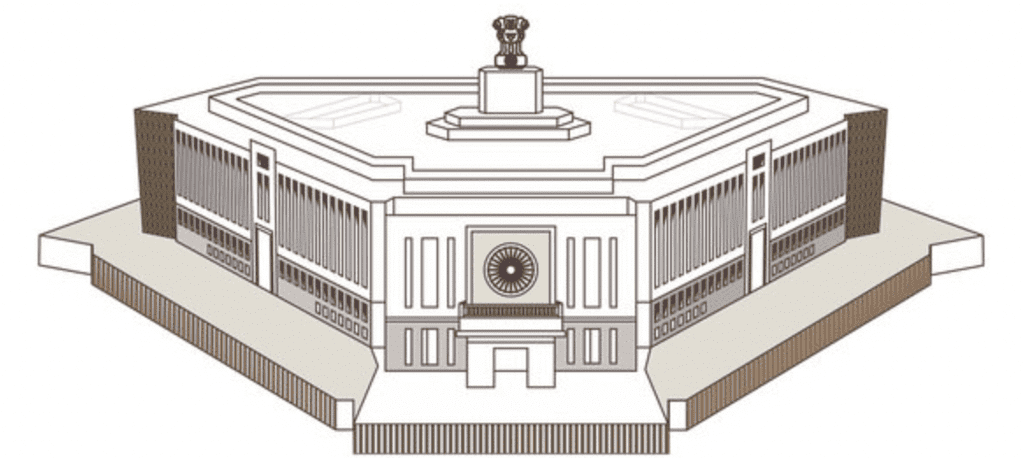Parliament and the Making of Laws Class 8 Worksheet Social Science
| Table of contents |

|
| Multiple Choice Questions (MCQs) |

|
| Fill in the Blanks |

|
| True/False |

|
| Very Short Answer Questions |

|
Multiple Choice Questions (MCQs)
Q1: What is the main benefit of democracy?
A) It allows the government to control everything
B) It protects the interests of a small group of elites
C) It gives citizens the right to choose their representatives and have a say in government decisions
D) It only benefits people who have a lot of money and power
Q2: What is the significance of the Indian Parliament in the political framework?

A) It has no authority in the political framework
B) It serves as a testament to the distrust that the Indian public has in democratic principles
C) It wields significant authority and the government is answerable to it for its actions
D) It has no power to question the government's choices or evaluate its performance
Q3: What does the Parliament do when a controversial law is widely criticized by the public?
A) Ignores public opinion and maintains the law
B) There is pressure on Parliament to amend or repeal it
C) Parliament passes more laws to strengthen the controversial one
D) The law is automatically nullified
Q4: What was a direct outcome of Rosa Parks' act of protest?
A) The establishment of the United Nations
B) The enactment of the Civil Rights Act of 1964
C) The start of World War II
D) None of the above
Q5: How are members of the Lok Sabha elected?
A) By nomination from the President of India
B) Directly by the people of India through general elections
C) By appointment from the Prime Minister
D) Through selection by the state legislatures
Fill in the Blanks
Q1: The Indian Parliament was established after gaining independence in ___________.
Q2: Parliament has the power to ___________ laws.
Q3: The ___________ is the lower house of Parliament and is also known as the House of the People.
Q4: Members of the Rajya Sabha are elected by the ___________ assemblies of different states.
Q5: The opposition in Parliament plays a crucial role in ___________ the functioning of the government.
True/False
Q1: The Government of India Act 1909 allowed all adults to vote.
Q2: The Parliament cannot intervene in controversial laws once they are passed.
Q3: The Lok Sabha has more power than the Rajya Sabha in the law-making process.
Q4: The Constitution of India was established with the principle of universal adult franchise right at independence.
Q5: Rajya Sabha members are directly elected by the public.
Very Short Answer Questions
Q1: How does the Parliament session begins?
Q2: What are the two Houses of Parliament?
Q3: What is a constituency?
Q4: What is the purpose of parliament?
Q5: How many members does the President nominates in Lok Sabha and Rajya Sabha?
Q6: Parliament is the most important symbol of Indian Democracy. Explain.
Q7: What are the basic ideals of democracy?
Q8: Enlist the components of Indian Parliament.
Q9: Describe coalition government.
Q10: How is a national government selected?
Q11: What is ‘Question Hour’ in Parliament?
Q12: "With the coming of Independence we are going to be citizens of a free country". What did this mean for India?
You can access the solutions to this worksheet here.
|
69 videos|431 docs|46 tests
|
FAQs on Parliament and the Making of Laws Class 8 Worksheet Social Science
| 1. What is the role of the Parliament in the law-making process? |  |
| 2. How many houses are there in the Parliament, and what are they called? |  |
| 3. What is a bill, and how does it become a law? |  |
| 4. What is the difference between a 'money bill' and a 'non-money bill'? |  |
| 5. Why is the Parliament considered a vital part of democracy? |  |





















